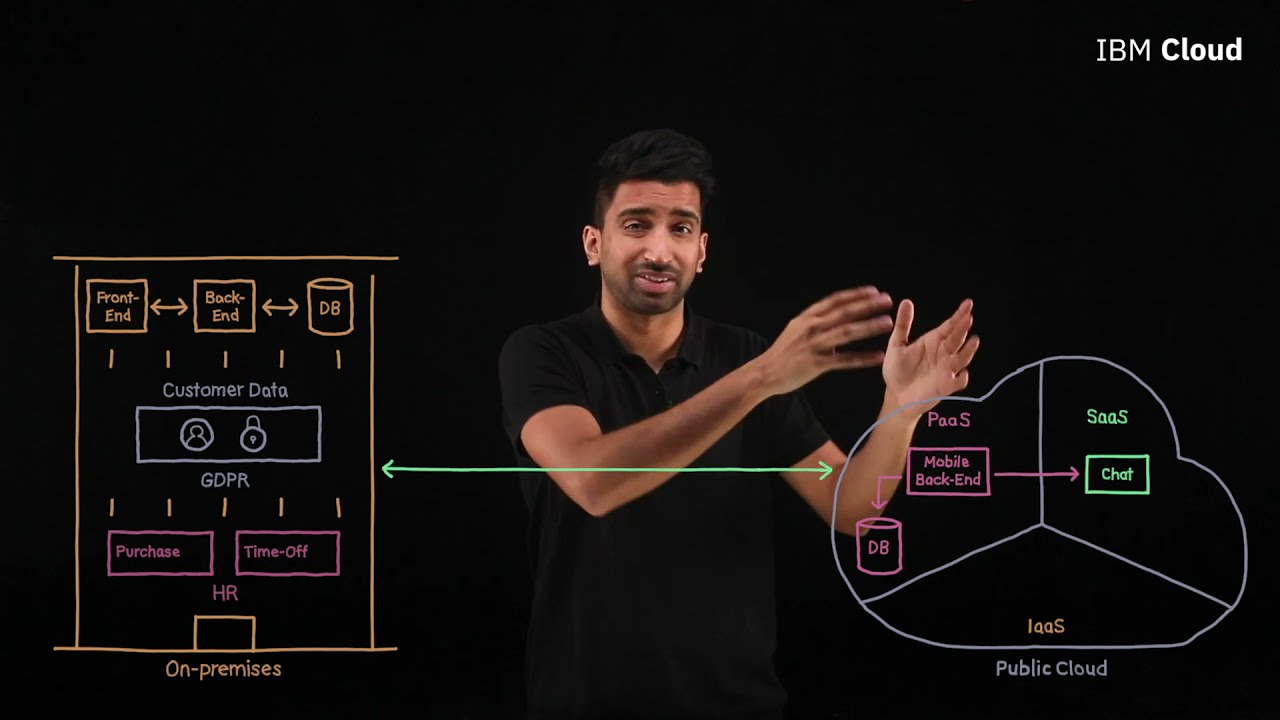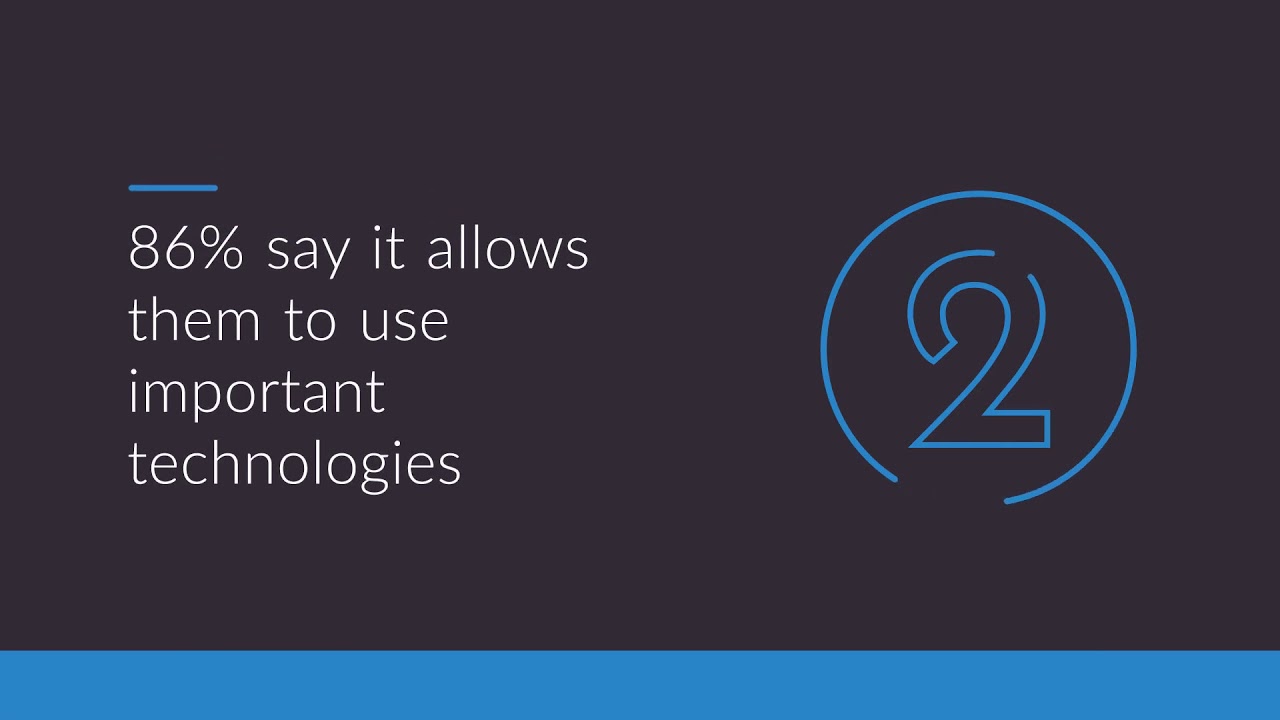Advantages of Hybrid Cloud A Comprehensive Guide
26.10.2023
Cloud Computing
As technology continues to advance, businesses are looking for more efficient ways to manage their data. One solution that has gained popularity in recent years is hybrid cloud computing. This approach combines the benefits of both public and private clouds, offering a flexible and secure platform for businesses. In this article, we will discuss the advantages of hybrid cloud and answer some frequently asked questions.
What is Hybrid Cloud?
A hybrid cloud is a combination of two or more different cloud computing models. Typically, this includes a mix of public cloud services from providers like Amazon Web Services (AWS), Google Cloud Platform (GCP), and Microsoft Azure, as well as private cloud infrastructure hosted on-premises or with a third-party provider. By integrating these platforms, businesses can achieve greater flexibility, scalability, and security than using either model alone.
Advantages of Hybrid Cloud:
- Flexibility: Hybrid cloud solutions offer businesses the ability to scale up or down quickly based on changing needs or demand. By leveraging public cloud resources during peak periods, businesses can avoid the costs associated with maintaining excess capacity on-premises.
- Security: Private clouds are typically more secure than public clouds because they are isolated and controlled by the business. However, by integrating public cloud resources into their environment, businesses can still benefit from the security measures and compliance certifications offered by major public cloud providers.
- Cost savings: By using a hybrid cloud model, businesses can reduce their capital expenses by avoiding investments in expensive hardware and software. Instead, they can leverage the cost-effective resources of public cloud providers while also maintaining control over critical data and applications.
- High availability: Hybrid cloud solutions improve availability by providing redundancy across multiple clouds. If one cloud experiences downtime, traffic can be redirected to another cloud to maintain uptime and ensure business continuity.
- Improved performance: By utilizing public cloud resources for compute-intensive tasks, businesses can achieve faster and more efficient processing without overburdening their private cloud infrastructure.
How to Implement Hybrid Cloud
Implementing a hybrid cloud solution requires careful planning and execution. Here are some steps to consider:
IBM has been pushing laborious on being a aggressive menace in enterprise cloud, however is much behind the leaders like Amazon AWS, Microsoft Azure and Google Cloud. It’s newest technique to turn out to be extra related, along with shopping for RedHat for its cloud experience, is to develop a sequence of “straightforward on-ramp” Cloud Paks that it claims can considerably scale back the period of time needed for enterprises to be cloud-enabled. However is that this sufficient to alter the potential of IBM to compete in a extremely aggressive fashionable cloud surroundings?
- Identify your business needs: Determine which workloads or applications will benefit most from being moved to the cloud, and which ones need to remain on-premises for security or compliance reasons.
- Choose your cloud providers: Select the public cloud providers that offer the features and services most suited to your business needs.
- Integrate your clouds: By linking your private and public clouds, you can create a seamless experience for users and ensure that data is transferred securely and efficiently between environments.
- Test and monitor: Once your hybrid cloud is up and running, it is important to test its performance and monitor for any issues or vulnerabilities. Regular updates and maintenance should also be performed to ensure optimal performance and security.
Pros and Cons of Hybrid Cloud
Like any technology solution, hybrid cloud has its advantages and disadvantages. Here are some pros and cons to consider before implementing a hybrid cloud solution:
Had IT groups realized the necessities of the hybrid cloud, the easiest way to handle them, and greatest practices for information safety, they might have fared much better, in keeping with Sinclair. “I’m an enormous believer that cloud adoption shouldn't be taken frivolously, and that individuals needs to be educated as a lot as humanly potential in hybrid cloud environments,” he says.
Pros:
- Flexibility to scale resources as needed
- Access to cost-effective public cloud resources
- Increased security and compliance options
- Improved uptime and availability
- Faster processing and improved performance
Cons:
- Complexity in managing multiple cloud environments
- Potential security risks associated with transferring data between clouds
- Higher upfront costs for integration and management
- Dependence on third-party cloud providers
Alternatives to Hybrid Cloud
While hybrid cloud offers many benefits, it may not be the best fit for every business. Some alternative solutions to consider include:
- Public cloud: For businesses with fewer security requirements or limited on-premises resources, public cloud may be a cost-effective option.
- Private cloud: Businesses with strict compliance or regulatory requirements may prefer to keep their data and applications entirely on-premises or with a dedicated third-party provider.
- Multi-cloud: Another option is to use multiple public cloud providers rather than integrating them with a private cloud.
Frequently Asked Questions
1. What is the difference between hybrid cloud and multi-cloud?
Hybrid cloud combines public and private clouds, while multi-cloud involves using multiple public cloud providers. Hybrid cloud is typically used when a business has specific security or compliance requirements that cannot be met by a public cloud alone.
As its cloud plans advance, Ceridian is prioritizing community virtualization, which the corporate views as a crucial element in its long-term enterprise technique. "We truly rolled out a virtualized SD-WAN a lot of years in the past, so we have been kind of main the cost down the trail to make it possible for we had redundancy throughout our networks—campus-to-campus, campus-to-data heart, and campus-to-cloud—all within the virtual-network area," Perlman says.
2. How does hybrid cloud improve security?
Hybrid cloud improves security by allowing businesses to maintain control over their most sensitive data and applications while still leveraging the security features of major public cloud providers. This includes access controls, encryption, and compliance certifications.
3. How much does it cost to implement a hybrid cloud solution?
The cost of implementing a hybrid cloud solution can vary depending on the size and complexity of the environment. Factors to consider include the cost of deploying private cloud infrastructure, licensing fees for public cloud services, and ongoing management and maintenance costs.
4. Can I move workloads between private and public clouds?
Yes, one of the key features of hybrid cloud is the ability to move workloads between private and public clouds. This can be done seamlessly using tools like VMware vSphere or Microsoft Azure Stack.
5. Is hybrid cloud right for my business?
Whether hybrid cloud is the right fit for your business depends on your unique needs and requirements. Consider factors such as security, scalability, cost, and compliance when evaluating different cloud solutions.
Conclusion
Hybrid cloud offers many advantages over traditional cloud computing models, providing businesses with greater flexibility, security, and cost savings. However, it is important to carefully plan and execute a hybrid cloud implementation to ensure optimal performance and security. By understanding the pros and cons of hybrid cloud and considering alternative solutions, businesses can make an informed decision about which cloud model is best for their needs.




